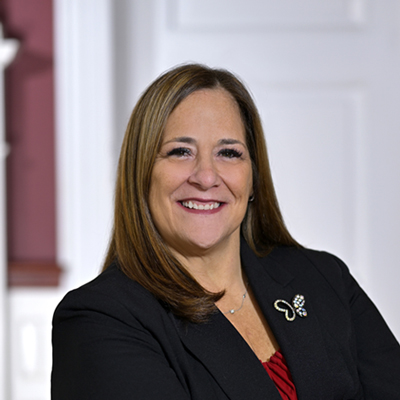Talk to a Juvenile Lawyer to Get the Right Answers
If your child is involved in a situation that warrants guidance through the Juvenile Delinquency System – you need answers. First, as the guardian, you must be informed of what to expect and the language involved. High Swartz juvenile lawyer Chelsey A. Christiansen has compiled a list of frequently asked questions she often sees in Pennsylvania cases. So, if you're looking for a juvenile lawyer in Bucks County or Montgomery County, PA, her insights will prove helpful.
What is Juvenile Law?
Juvenile law encompasses two systems – the juvenile dependency and juvenile delinquency systems. The juvenile dependency system generally addresses children whose parents cannot provide proper care. The below questions focus on the juvenile delinquency system and present a general overview of the delinquency system. Here are some of the most common questions we see as juvenile lawyers.
What is Juvenile Delinquency?
Juvenile delinquency refers to unlawful acts conducted by minors. The juvenile delinquency system in PA addresses children who engage in behaviors that would be criminal if committed by adults.
Is Juvenile Court Considered Criminal Court for Kids?
No. The PA juvenile delinquency system is established instead of a criminal court for children. It functions on the belief that misbehavior requires consequences. However, based on their development needs, children require rehabilitation instead of punishment for engaging in conduct otherwise construed as criminal if committed by an adult.
Juveniles do not commit crimes. Moreover, they do not get convicted for crimes. Instead, courts adjudicate juveniles as delinquent. Make sure you work with an experienced juvenile lawyer if you're child faces adjudication as delinquent.
What Does It Mean to Be a Delinquent Child?
The statute defines a "delinquent child" as "a child ten years of age or older (up to age 18) whom the court has found to have committed a delinquent act and needs treatment, supervision or rehabilitation."
What is Considered a Delinquent Act in PA?
Generally, delinquent acts are those acts that would be a crime if committed by an adult. However, PA stature excludes certain acts as delinquent, such as murder, owing to its heinous nature. Therefore, the adult criminal system can institute criminal charges against juveniles in these limited circumstances.
If My Child Commits a Delinquent Act, Will They Be Adjudicated Delinquent?
It depends. The juvenile system seeks to meet the child's treatment, supervisory, and rehabilitative needs by the least restrictive means. Ideally, there is a correlation between the child's needs and the nature of the delinquent act. For example, a child who commits an act defined as burglary if committed by an adult likely requires more effective treatment, supervisory and rehabilitative needs than a child who commits a misdemeanor disorderly conduct.
If your child has committed a less serious offense, there is a chance they will qualify for a diversion program. This intervention strategy redirects delinquent children from formal juvenile justice system processing. A juvenile lawyer can assess the severity of the act.
What Happens if My Child is a First-Time Offender?
Generally, courts offer diversion programs to first-time offenders who commit less serious offenses and do not have significant treatment, supervision, or rehabilitative needs. The child must be admitted into a diversion program before formal adjudication of delinquency, as the program's purpose is to avoid formal delinquency adjudication.
How Soon Does My Child Need a Juvenile Lawyer?
The juvenile delinquency system moves quickly and efficiently. As a result, make sure you contact a juvenile lawyer for your child as soon as possible to explore whether your child may qualify for any diversion programs.
What Proof is Required to find a Child is Delinquent?
An adjudication of delinquency is a two-part finding. First, a judge must determine that the child committed a delinquent act, and next, the court must find that the child requires treatment, supervision, or rehabilitation. Finally, the court will hold an adjudicatory hearing to adjudicate a child as delinquent. While the child has a right to a trial, as in criminal court, the juvenile court tends to be less adversarial than adult criminal court. Nonetheless, you'll want to enlist the aid of an experienced juvenile lawyer near you.
What Happens at a Delinquency Hearing?
The adjudicatory hearing is the hearing at which the court determines whether the child has committed a delinquent act and needs treatment, supervision, and rehabilitation. A juvenile has the option to have a contested hearing or may elect to admit to the delinquent act. Minors do not enter guilty pleas; instead, a child may enter an admission to a delinquency act, thereby waiving certain rights. After a hearing or receipt of the juvenile's admission, the court will determine whether to adjudicate the child delinquent.
What Happens If the Court Finds My Child Delinquent?
Once the court enters an adjudication of delinquency, the matter moves forward to determine what services must go in place to address the juvenile's needs. Children do not receive a" "sentence" as adult criminal defendants do. Instead, they receive a disposition (the court's final ruling on consequences). After an adjudication hearing, the court will schedule a disposition hearing to determine the best way to meet the child's treatment, supervision, and rehabilitative needs by assigning the least restrictive requirements.
Disposition typically involves placement on juvenile probation and participation in treatment and rehabilitative programs. In addition, the disposition can include an out-of-home placement. Therefore, having a juvenile lawyer in your court is essential to help defend your child.
What are the consequences of an adjudication of delinquency?
If adjudicated delinquent, your child also receives a disposition. Every child's disposition will be different, as its purpose is to meet the specific child's treatment, supervision, and rehabilitative needs.
What Does a Disposition Entail?
Typically, disposition requires participation in treatment programs and the imposition of conditions regarding school attendance, curfew, and abstention from delinquent behaviors, including drug use. In addition, the disposition can demand payment of restitution or other costs and fines. Disposition can also require out-of-home placement based on the child's needs.
A critical distinction between a juvenile disposition and an adult criminal sentence is that there is no time parameter in juvenile court aside from the jurisdictional limit of the juvenile court. Juvenile court can supervise a child until his/her/their twenty-first birthday. After that, a child remains on probation and under the supervision of the juvenile court until juvenile probation, the district attorney, the juvenile lawyer, and the court determine that it meets the child's needs and has satisfied all conditions of disposition.
How Long Will My Child Be On Probation?
The first question typically asked by juveniles and their families is, "how long will my child be on probation" The only absolute answer is no later than his/her/their twenty-first birthday. Thus, a child can enter the juvenile system at age 13 and remain on probation for up to 8 years if the child fails to adequately participate in the program or engage in the treatment and rehabilitative processes. There is no standard time frame for probation, as every disposition focuses on each child's specific needs.
Do my Juvenile Lawyer, or do I Need to Notify MyChild's School?
If adjudicated delinquent, juvenile probation requires notification of the child's school of the child's delinquent act(s), a brief description of the actions, and the child's disposition. Certain juvenile matters remain unsealed and available for public information.
What are Some Other Consequences My Child Might Face?
A delinquency adjudication may result in several other collateral consequences. For example, certain delinquent acts require a driver's license suspension, even if the child has yet to obtain their license. In addition, juveniles adjudicated with certain sex crimes may have to register as a sex-offender. So, working with a juvenile lawyer is essential to control the outcome.
Will the Courts Expunge My Child's Records When They Turn 18?
It's important to understand that juvenile records are not automatically erased or destroyed. It is a common misconception that juvenile records automatically expire once the child turns 18. There is a process to obtain a juvenile record expungement in Pennsylvania. Unless completed and approved by a judge, the juvenile record remains accessible. When discussing a juvenile matter with an attorney, it is critical to assess what collateral consequences the child may face.
My Child Got in Trouble with Police Involvement – What Do I Do Next?
- Contact a Juvenile lawyer. Children in the juvenile delinquency system have a right to counsel by a juvenile lawyer or family law attorney, and you should assert that right as early as possible.
- Exercise caution. Don't encourage or force your child to admit wrongdoing to the police. Moreover, don't waive their rights. A knowing and voluntary admission to the police can be admissible evidence at a later hearing. Your child will not be lying if he/she/they wait to talk to an advisor.
- Understand that your child is likely more confused than you are regarding this process and needs an advocate.
Our Bucks County and Montgomery Country Juvenile Lawyers Can Help
High Swartz juvenile lawyer Chelsey Christiansen advocates for children involved in juvenile delinquency. If you feel your child's situation meets any of the above criteria noted in the FAQs, contact Chelsey and the family law attorneys at High Swartz at 610.275.0700 or email Chelsey at cchristiansen@highswartz.com.




